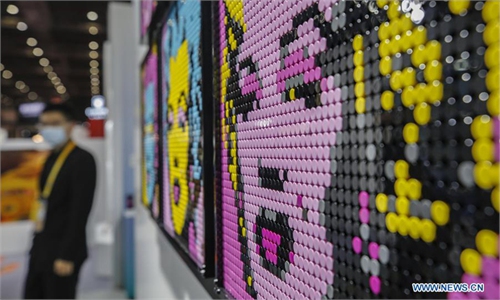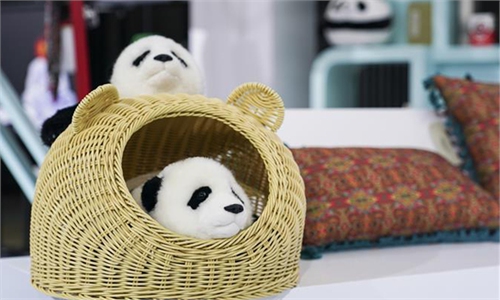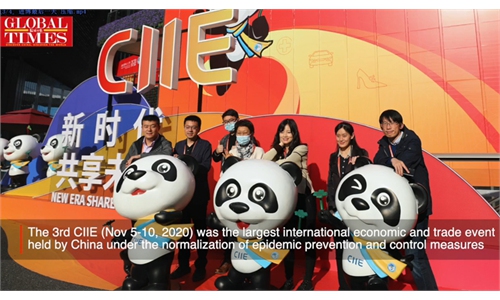China’s import fair reports 2% rise in turnover
Results offer hope for business, signal restart of global trade
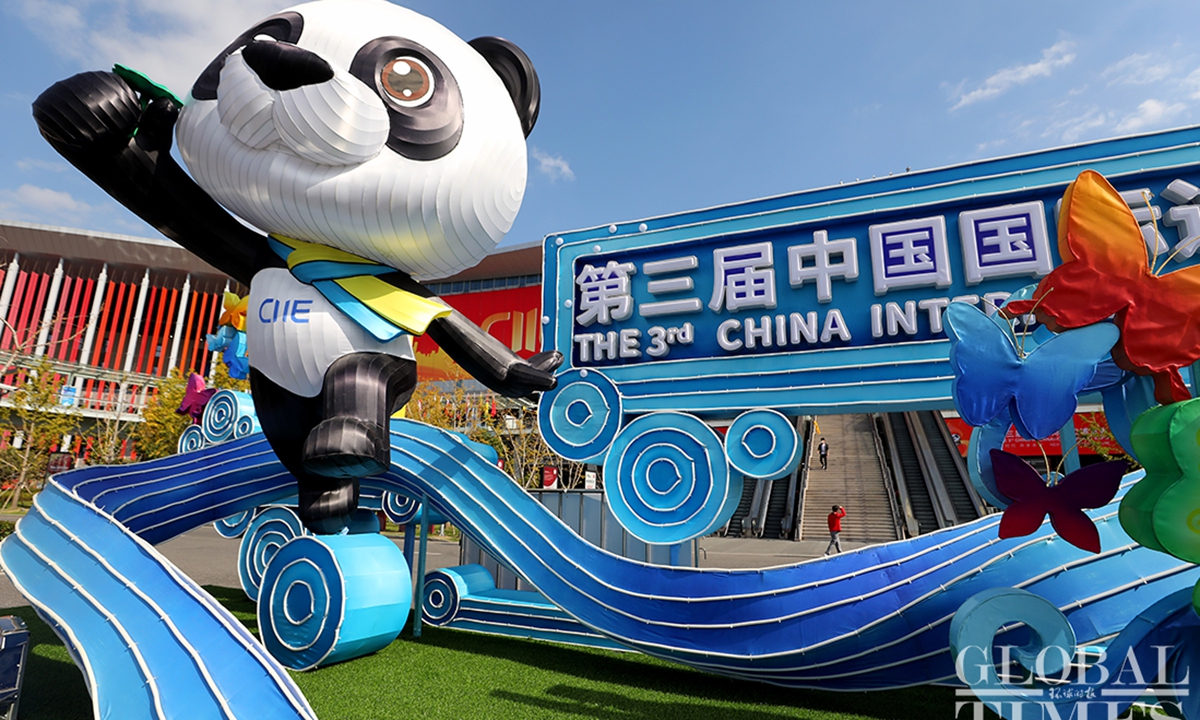
CIIE
The third China International Import Expo (CIIE), the largest in-person global trade event amid the raging pandemic so far this year, ended in Shanghai on Tuesday with a turnover of $72.62 billion, an increase of 2.1 percent over last year's - proof of China's ability to fulfill its opening-up promise despite headwinds. This remarkable result also injects confidence in global businesses still struggling from the pandemic's impact.
The five-day expo, which had attracted more than 2,700 businesses from over 120 countries and regions, covered an exhibition area of 360,000 square meters and displayed 411 new products, technologies and services. It also signals the recovery of global trade, as those who came have found hope in the world's second-largest market.
"Against this year's special circumstances, it is very significant that CIIE was held as scheduled. The event also provides a 'strong boost' to the economic recovery of China and the world," Yin Zheng, executive vice president of Schneider Electric, told the Global Times on Tuesday.
The strong enthusiasm from various stakeholders to this year's CIIE also underlined the importance of China to drive global economic recovery, Yin said. He noted that for enterprises in various industries, the CIIE will be considered the bellwether of the economic environment, and the CIIE delivers their expectations for a more active market.
Several senior executives of foreign companies told the Global Times that they had undergone five to six nucleic acid tests to attend the CIIE, just to make sure that they didn't miss customers and business opportunities in China. There were also representatives who attended the CIIE "on the cloud," and they participated in digital press conferences during the expo to introduce their products.
Roy Francis van den Hurk, general manager of Global R&D at Milk New Zealand Dairy Company, is one of the many foreign exhibitors who believes the deals he achieved were worth the effort and trouble he went through. Hurk took four nucleic acid tests and spent 28 days of isolation for the expo.
Hurk said his company had signed contracts worth 1.5 billion yuan at the third CIIE. Not only did it sign trade contracts with Chinese purchasers, it also made customer-to-manufacturer deals with many professional platforms.
"This is the third year for me to attend the CIIE. I appreciated the growth CIIE brought to my company, and I have promised to take our newest products to China every year. I think I will hold on to this promise and will continue to attend the future CIIEs," Hurk said.
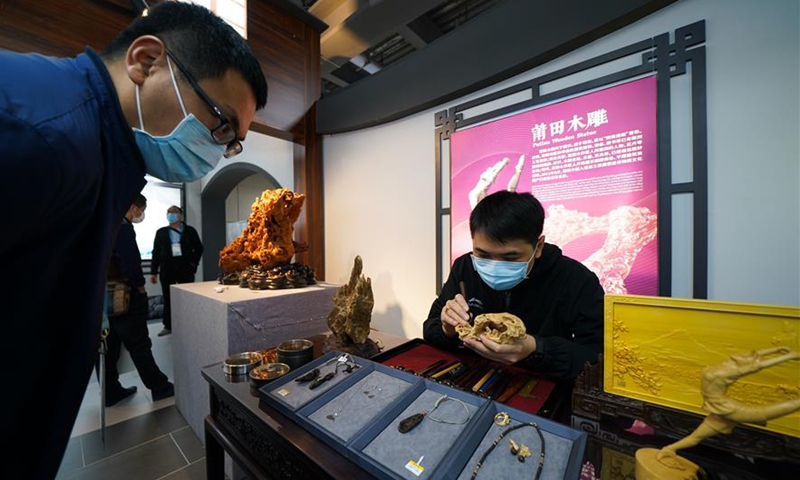
Lin Jianjun (R), an inheritor of intangible cultural heritage, displays the carving skills of Putian Wooden Statue during the third China International Import Expo (CIIE) in Shanghai, east China, Nov. 8, 2020. The exhibitions of China's intangible cultural heritage at the third CIIE has shown the charm of Chinese culture to exhibitors from all over the world. While promoting economic and trade cooperation, cultural exchanges have also been strengthened here. (Xinhua/Wang Jianhua)
China's increasing importance
The deals they had struck during the CIIE amid the pandemic also made the foreign exhibitors further realize that China, which has unleashed great consumption power and industrial chain resilience even as the pandemic hovers over other parts of the world, will only be more important in their future business strategy.
"I think Chinese consumers are more willing to accept new products compared to others, and we are quite confident in the China market," Aisha, director of Moughal Cottage Industries, a cashmere scarf company, told the Global Times on Tuesday, adding that they noticed that Chinese consumers are increasingly more interested in high-end products.
According to a survey released by a foreign bank during the CIIE, the development of the world economy and trade has stagnated due to the impact of the pandemic and geopolitical tensions. However, global companies are focusing on China, the fastest-growing major economy, as their hope for business growth in the next few years. China will also continue to play a key role in the global supply chain.
Three-fourths of the companies surveyed expect to increase the proportion of their supply chains in China in the next two years, and more than 40 percent plan to increase the proportion of China's supply chains by 10 percent or more.
Taking the US market. Despite a geopolitical dispute, 70 percent of US companies surveyed said they plan to increase supply chains in China. And one-fifth of US companies plan to increase China's supply chain by 20 percent or more in the next two years, the survey showed.
As a first-timer to the CIIE, Tyson Foods had made deals worth about 3 billion yuan.
The firm told the Global Times it is very optimistic about China's retail business and will further gear up to catch China's consumption upgrading pace. It noted that it will continue to expand its China layout and realize its revenue target of 30 billion yuan.
"We strongly intend to participate in the next CIIE," the firm said.
As of now, hundreds of companies have already signed up for the 4th CIIE, event officials said on Tuesday.
However, while the CIIE offers a rare glimmer of hope for many foreign companies, with major businesses securing deals and saving their businesses for next year, the impact of the COVID-19 on global trade will still linger on for at least a year, analysts said.
If the pandemic could be better controlled on a global scale next year, these foreign exhibitors will only receive more services and see a looser environment in the next CIIE, Bai Ming, deputy director of the Ministry of Commerce's International Market Research Institute, told the Global Times on Tuesday.


